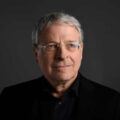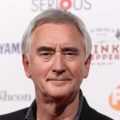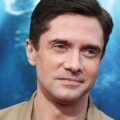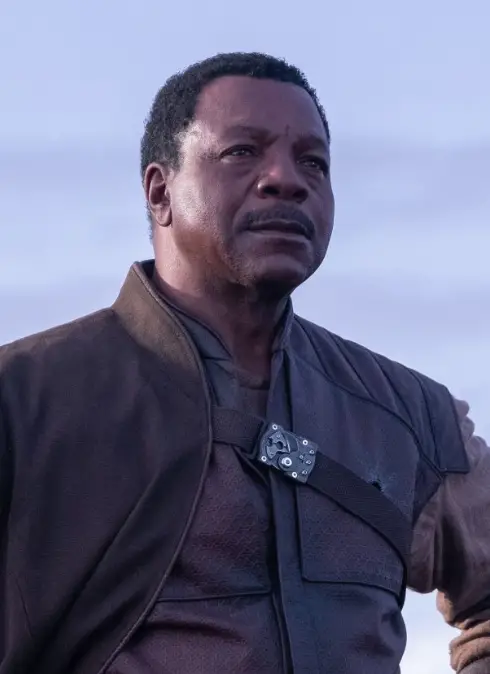Max von Sydow Biography
Max von Sydow born Carl Adolf von Sydow, on 10th April 1929 is a Swedish actor. He also holds French citizenship since 2002. He has appeared in many European and American films in several languages, including Swedish, English, Norwegian, Danish, German, French, Italian, and Spanish. He received the Royal Foundation of Sweden’s Cultural Award in 1954, was made a Commandeur des Arts et des Lettres in 2005, and was named a Chevalier de la Légion d’honneur on 17 October 2012.
Sydow has appeared in well over a hundred films and TV shows. Some of his most memorable film roles include as Knight Antonius Block in Ingmar Bergman’s The Seventh Seal (1957), the first of his eleven films with Bergman and the film that includes the iconic scenes in which he plays chess with Death; Martin in Through a Glass Darkly (1961);
Jesus in The Greatest Story Ever Told (1965); Oktober in The Quiller Memorandum (1966); Karl Oskar Nilsson in The Emigrants (1971); Roy Lindberg in The Apple War (1971); Father Lankester Merrin in The Exorcist (1973); Joubert the assassin in Three Days of the Condor (1975); Ming the Merciless in Flash Gordon (1980); the villain Ernst Stavro Blofeld in the James Bond film Never Say Never Again (1983); Liet-Kynes in Dune (1984);
Frederick in Hannah and Her Sisters (1986); Lassefar in Pelle the Conqueror (1987), for which he received his first Academy Award nomination; Dr Peter Ingham in Awakenings (1990); Lamar Burgess in Minority Report (2002); Josiah Kane in Solomon Kane (2009); Sir Walter Loxley in Robin Hood (2010); The Renter in Extremely Loud and Incredibly Close (2012), which earned him his second Academy Award nomination; and Lor San Tekka in Star Wars: The Force Awakens (2015). In 2016, Sydow joined the cast of HBO’s hit series Game of Thrones, playing the role of the Three-eyed Raven for which he received a Primetime Emmy Award nomination.
Von Sydow was born in Lund, to a wealthy family. His father, Carl Wilhelm von Sydow, was an ethnologist and professor of Irish, Scandinavian, and comparative folklore at the University of Lund. His mother, Maria Margareta “Greta”, the Baroness Rappe, was a schoolteacher. Some of his ancestry is German; his family’s origin is in Pomerania, now a region mostly in Poland, formerly part of Prussia – much of which was under Swedish rule from 1630 to 1815 – and Sydow is a Prussian family name. The particle von means “of” and usually indicates aristocratic descent. Sydow was brought up as a Lutheran and later became an agnostic.
He attended Lund Cathedral School, where he learned German and English, starting at the age of nine. At school he and some friends founded an amateur theatrical company. He completed his national service before studying at the Royal Dramatic Theatre (Dramaten) in Stockholm, where he trained between 1948 and 1951 with the likes of Lars Ekborg, Margaretha Krook and Ingrid Thulin. During his time at Dramaten, he made his screen debuts in Alf Sjöberg’s films Only a Mother (Bara en mor, 1949) and Miss Julie (Fröken Julie, 1951), a screen version of Strindberg’s scathing drama.
Max Von Sydow Star Wars
Thirty years after the defeat of the Galactic Empire, the galaxy faces a new threat from the evil Kylo Ren (Adam Driver) and the First Order. When a defector named Finn (John Boyega) crash-lands on a desert planet, he meets Rey (Daisy Ridley), a tough scavenger whose droid contains a top-secret map. Together, the young duo joins forces with Han Solo (Harrison Ford) to make sure the Resistance receives the intelligence concerning the whereabouts of Luke Skywalker (Mark Hamill), the last of the Jedi Knights.
Max Von Sydow Movies
| Year | Title | Role | Director | Notes |
|---|---|---|---|---|
| 1949 | Only a Mother | Nils | Alf Sjöberg | |
| 1951 | Miss Julie | Hand | ||
| 1953 | Ingen mans kvinna | Olaf | Lars-Eric Kjellgren | |
| 1956 | Rätten att älska | Bergman | Mimi Pollak | |
| 1957 | The Seventh Seal | Antonius Block | Ingmar Bergman | |
| Wild Strawberries | Henrik Åkerman | |||
| Prästen i Uddarbo | Gustaf Ömark | Kenne Fant | ||
| 1958 | Brink of Life | Harry Andersson | Ingmar Bergman | |
| Rabies | Bo Stensson Svenningson | |||
| The Magician | Albert Emanuel Vogler | |||
| Kvinnlig spion 503 | Tysk topagent Horst | Jørn Jeppesen | ||
| 1960 | The Virgin Spring | Töre | Ingmar Bergman | |
| The Wedding Day | Anders Frost | Kenne Fant | ||
| 1961 | Through a Glass Darkly | Martin | Ingmar Bergman | |
| 1962 | Adventures of Nils Holgersson | The Father | Kenne Fant | |
| The Mistress | Married Man | Vilgot Sjöman | ||
| 1963 | Winter Light | Jonas Persson | Ingmar Bergman | |
| 1965 | 4×4 | Kvist | Jan Troell | Segment: “Uppehåll i myrlandet“ |
| The Greatest Story Ever Told | Jesus Christ | George Stevens | ||
| The Reward | Scott Swenson | Serge Bourguignon | ||
| 1966 | Hawaii | Reverend Abner Hale | George Roy Hill | Nominated – Golden Globe Award for Best Actor – Motion Picture Drama |
| The Quiller Memorandum | Oktober | Michael Anderson | ||
| Here’s Your Life | Smålands-Pelle | Jan Troell | ||
| 1968 | Hour of the Wolf | Johan Borg | Ingmar Bergman | |
| Black Palm Trees | Gustav Olofsson | Lars-Magnus Lindgren | ||
| Shame | Jan Rosenberg | Ingmar Bergman | ||
| 1969 | Made in Sweden | Magnus Rud | Johan Bergenstråhle | |
| The Passion of Anna | Andreas Winkelman | Ingmar Bergman | ||
| 1970 | The Kremlin Letter | Colonel Kosnov | John Huston | |
| 1971 | The Night Visitor | Salem | László Benedek | |
| The Emigrants | Karl Oskar | Jan Troell | ||
| The Touch | Andreas Vergerus | Ingmar Bergman | ||
| The Apple War | Roy Lindberg | Tage Danielsson | ||
| 1972 | Embassy | Gorenko | Gordon Hessler | |
| The New Land | Karl Oskar | Jan Troell | ||
| 1973 | The Exorcist | Father Lankester Merrin | William Friedkin | Nominated – Golden Globe Award for Best Supporting Actor – Motion Picture |
| 1974 | Steppenwolf | Harry Haller | Fred Haines | |
| 1975 | Egg! Egg! A Hardboiled Story | The Father | Hans Alfredson | |
| Le miroir éclate | Matthew Lawrence | Claude d’Anna | ||
| Three Days of the Condor | G. Joubert | Sydney Pollack | ||
| The Ultimate Warrior | The Baron | Robert Clouse | ||
| 1976 | Cuore di cane | Professor Filipp Filippovich Preobrazenski | Alberto Lattuada | |
| Illustrious Corpses | Supreme Court’s President | Francesco Rosi | ||
| Foxtrot | Larsen | Arturo Ripstein | ||
| The Desert of the Tartars | Hortiz | Valerio Zurlini | ||
| Voyage of the Damned | Captain Schroeder | Stuart Rosenberg | ||
| 1977 | Exorcist II: The Heretic | Father Lankester Merrin | John Boorman | |
| March or Die | François Marneau | Dick Richards | ||
| Black Journal | Lisa Carpi | Mauro Bolognini | ||
| 1978 | Brass Target | Shelley | John Hough | |
| 1979 | Hurricane | Dr Danielsson | Jan Troell | |
| Bugie bianche | Marcello Herrighe | Stefano Rolla | ||
| 1980 | Death Watch | Gerald Mortenhoe | Bertrand Tavernier | |
| Flash Gordon | Ming the Merciless | Mike Hodges | Nominated – Saturn Award for Best Supporting Actor | |
| 1981 | Escape to Victory | Major Karl von Steiner | John Huston | |
| 1982 | Conan the Barbarian | King Osric | John Milius | |
| Flight of the Eagle | Salomon August Andrée | Jan Troell | Venice Film Festival Pasinetti Cup for Best Actor | |
| Hit Man | Colonel O’Donnell | José Antonio de la Loma | ||
| 1983 | Le Cercle des passions | Carlo di Vilalfratti | Claude d’Anna | |
| Strange Brew | Brewmeister Smith | Rick Moranis & Dave Thomas |
||
| Never Say Never Again | Ernst Stavro Blofeld | Irvin Kershner | ||
| 1984 | Dreamscape | Doctor Paul Novotny | Joseph Ruben | |
| Dune | Doctor Kynes | David Lynch | ||
| 1985 | Code Name: Emerald | Jurgen Brausch | Jonathan Sanger | |
| The Repenter | Spinola | Pasquale Squitieri | ||
| 1986 | Hannah and Her Sisters | Frederick | Woody Allen | |
| The Second Victory | Dr Huber | Gerald Thomas | ||
| The Wolf at the Door | August Strindberg | Henning Carlsen | ||
| Duet for One | Dr Louis Feldman | Andrei Konchalovsky | ||
| 1987 | Pelle the Conqueror | Lassefar Karlsson | Bille August | Bodil Award Best Actor European Film Award for Best Actor Guldbagge Award Best Actor Robert Festival Best Actor National Society of Film Critics Award for Best Actor (3rd place) Nominated – Academy Award for Best Actor |
| 1988 | Katinka | Max von Sydow | Guldbagge Award for Best Film Guldbagge Award for Best Director |
|
| 1989 | Ghostbusters II | Vigo the Carpathian | Ivan Reitman | Voice |
| 1990 | The Bachelor | Von Schleheim | Roberto Faenza | |
| A Violent Life | Pope Clement VII | Giacomo Battiato | ||
| Father | Joe Mueller | John Power | Australian Film Institute Award for Best Actor in a Leading Role | |
| Awakenings | Dr Peter Ingham | Penny Marshall | ||
| 1991 | A Kiss Before Dying | Thor Carlsson | James Dearden | |
| Europa | Narrator | Lars von Trier | Voice | |
| Until the End of the World | Henry Farber | Wim Wenders | ||
| The Ox | Vicar | Sven Nykvist | ||
| The Best Intentions | Johan Åkerblom | Bille August | ||
| 1992 | The Silent Touch | Henry Kesdi | Krzysztof Zanussi | Tokyo International Film Festival Best Actor Award |
| 1993 | Grandpa’s Journey | Simon S.L. Fromm | Staffan Lamm | |
| Needful Things | Leland Gaunt | Fraser C. Heston | Nominated – Saturn Award for Best Actor | |
| 1994 | Time is Money | Joe Kaufman | Paolo Barzman | Karlovy Vary International Film Festival Best Actor |
| 1995 | Judge Dredd | Judge Fargo | Danny Cannon | |
| 1996 | Hamsun | Knut Hamsun | Jan Troell | Guldbagge Award Best Actor Valladolid International Film Festival Best Actor |
| Jerusalem | Vicar | Bille August | ||
| 1998 | What Dreams May Come | The Tracker | Vincent Ward | |
| 1999 | Snow Falling on Cedars | Nels Gudmundsson | Scott Hicks | |
| 2001 | Sleepless | Ulisse Moretti | Dario Argento | |
| Druids | Guttuart | Jacques Dorfmann | ||
| Intacto | Samuel | Juan Carlos Fresnadillo | ||
| 2002 | Minority Report | Director Lamar Burgess | Steven Spielberg | Nominated – Saturn Award for Best Supporting Actor |
| Les amants de Mogador | Souheil Ben-Barka | |||
| 2005 | Heidi | Uncle Alp | Paul Marcus | |
| 2006 | The Inquiry | Tiberius | Giulio Base | |
| 2007 | Rush Hour 3 | Reynard | Brett Ratner | |
| Emotional Arithmetic | Jakob Bronski | Paolo Barzman | Nominated – Genie Award for Best Performance by an Actor in a Supporting Role | |
| The Diving Bell and the Butterfly | Papinou | Julian Schnabel | ||
| 2009 | Solomon Kane | Josiah Kane | Michael J. Bassett | |
| A Man and His Dog | The Commander | Francis Huster | Cameo | |
| 2010 | Shutter Island | Dr Jeremiah Naehring | Martin Scorsese | |
| Robin Hood | Sir Walter Loxley | Ridley Scott | ||
| Moomins and the Comet Chase | Narrator | Maria Lindberg | Voice | |
| The Wolfman | Man on train with silver cane | Joe Johnston | Uncredited Deleted scene |
|
| 2011 | Extremely Loud and Incredibly Close | The Renter | Stephen Daldry | Nominated – Academy Award for Best Supporting Actor Nominated – Boston Society of Film Critics Award for Best Supporting Actor Nominated – Dallas-Fort Worth Film Critics Association Award for Best Supporting Actor Nominated – San Diego Film Critics Society Award for Best Supporting Actor |
| 2012 | Truth & Treason | Frank Fikeis | ||
| Branded | Joseph Pascal | Jamie Bradshaw & Aleksandr Dulerayn |
||
| 2013 | Dragons 3D | Dr Alistair Conis | Marc Fafard | |
| 2015 | The Letters | Father Celeste van Exem | William Riead | |
| Star Wars: The Force Awakens | Lor San Tekka | J. J. Abrams | ||
| 2016 | The First, the Last | The undertaker | Bouli Lanners | |
| 2018 | Kursk | Thomas Vinterberg |
Max Von Sydow GOT
In Game of Thrones, he portrays the Three-Eyed Raven in the sixth season, taking over the role from Struan Rodger.
Max Von Sydow Age
Max von Sydow born Carl Adolf von Sydow, on 10th April 1929 is a Swedish actor.
Max Von Sydow Young
Von Sydow was born in Lund, to a wealthy family. His father, Carl Wilhelm von Sydow, was an ethnologist and professor of Irish, Scandinavian, and comparative folklore at the University of Lund. His mother, Maria Margareta “Greta”, the Baroness Rappe, was a schoolteacher. Some of his ancestry is German; his family’s origin is in Pomerania, now a region mostly in Poland, formerly part of Prussia – much of which was under Swedish rule from 1630 to 1815 – and Sydow is a Prussian family name. The particle von means “of” and usually indicates aristocratic descent. Sydow was brought up as a Lutheran and later became an agnostic.
He attended Lund Cathedral School, where he learned German and English, starting at the age of nine. At school he and some friends founded an amateur theatrical company. He completed his national service before studying at the Royal Dramatic Theatre (Dramaten) in Stockholm, where he trained between 1948 and 1951 with the likes of Lars Ekborg, Margaretha Krook and Ingrid Thulin. During his time at Dramaten, he made his screen debuts in Alf Sjöberg’s films Only a Mother (Bara en mor, 1949) and Miss Julie (Fröken Julie, 1951), a screen version of Strindberg’s scathing drama.
Max Von Sydow Exorcist
The Exorcist is a 1973 American supernatural horror film adapted by William Peter Blatty from his 1971 novel of the same name, directed by William Friedkin, and starring Ellen Burstyn, Linda Blair, Max von Sydow, and Jason Miller. The film is part of The Exorcist franchise. The book, inspired by the 1949 exorcism of Roland Doe, follows the demonic possession of a 12-year-old girl and her mother’s attempts to win her back through an exorcism conducted by two priests. The adaptation is relatively faithful to the book, which itself has been commercially successful (earning a place on The New York Times Best Seller list).
The film experienced a troubled production; even in the beginning, several prestigious film directors including Stanley Kubrick and Arthur Penn turned it down. Incidents such as the toddler son of one of the main actors being hit by a motorbike and hospitalized attracted claims that the set was cursed. The complex special effects used, as well as the nature of the film locations, also presented severe challenges. The film’s notable psychological themes include the nature of faith and the boundaries of maternal love.
ExorcistThe Exorcist was released theatrically in the United States by Warner Bros. on December 26, 1973. The film was initially booked in only 26 theaters across the U.S., although it soon became a major commercial success. The film earned ten Academy Award nominations, winning Best Sound Mixing and Best Adapted Screenplay. It became one of the highest-grossing films in history, grossing over $441 million worldwide in the aftermath of various re-releases, and was the first horror film to be nominated for the Academy Award for Best Picture.
The film has had a significant influence on popular culture. Several publications have regarded it one of the greatest horror films of all time. For example, it was named the scariest film of all time by Entertainment Weekly in 1999, Movies.com in 2010, viewers of AMC in 2006, and the editors of Time Out in 2014. Prominent film critic Mark Kermode named it as his “favorite film of all time.” CHUD.com rated it as the 10th best film of all time in 2014. In addition, a scene from the film was ranked #3 on Bravo’s The 100 Scariest Movie Moments. In 2010, the Library of Congress selected the film to be preserved as part of its National Film Registry as being “culturally, historically, or aesthetically significant”. On January 22, 2016, 20th Century Fox Television announced that they were developing a television series of The Exorcist. It premiered on September 23, 2016.
Max Von Sydow Jesus
The Greatest Story Ever Told is a 1965 American epic film produced and directed by George Stevens. It is a retelling of the story of Jesus Christ, from the Nativity through to the Ascension. Along with the ensemble cast, it marked Claude Rains’ final film role.
For The Greatest Story Ever Told, Stevens cast Swedish actor Max von Sydow as Jesus. Von Sydow had never appeared in an English-language film and was best known for his performances in Ingmar Bergman’s dramatic films. Stevens wanted an actor unknown to international audiences, free of secular and unseemly associations in the mind of the public.
Max Von Sydow JesusThe Greatest Story Ever Told featured an ensemble of well-known actors, many of them in brief, even cameo, appearances. Some critics would later complain that the large cast distracted from the solemnity, notably in the appearance of John Wayne as the Roman centurion who comments on the Crucifixion, in his well-known voice, by stating: “Truly this man was the Son of God.”
Max Von Sydow Seventh Seal
The Seventh Seal (Swedish: Det sjunde inseglet) is a 1957 Swedish epic historical fantasy film written and directed by Ingmar Bergman. Set in Denmark during the Black Death, it tells of the journey of a medieval knight (Max von Sydow) and a game of chess he plays with the personification of Death (Bengt Ekerot), who has come to take his life. Bergman developed the film from his own play Wood Painting. The title refers to a passage from the Book of Revelation, used both at the very start of the film, and again towards the end, beginning with the words “And when the Lamb had opened the seventh seal, there was silence in heaven about the space of half an hour”.[Rev. 8:1] Here the motif of silence refers to the “silence of God,” which is a major theme of the film.
The Seventh Seal is considered a classic of world cinema, as well as one of the greatest movies of all time. It established Bergman as a world-renowned director, containing scenes which have become iconic through homages, critical analysis, and parodies.
Max Von Sydow Dead
Max Von Sydow is still alive despite all allegations that he was dead.
Max Von Sydow Flash Gordon
Flash Gordon is a 1980 science fiction action film based on the King Features comic strip of the same name created by Alex Raymond. Directed by Mike Hodges and produced by Dino De Laurentiis, the film was shot in Technicolor and Todd-AO-35. It stars Sam J. Jones, Melody Anderson, Topol, Max von Sydow, Timothy Dalton, Brian Blessed and Ornella Muti.
The movie was co-written by Michael Allin (of Enter the Dragon fame) and Lorenzo Semple Jr. (who had previously scripted De Laurentiis’s remake of King Kong). It uses a camp style similar to the 1960s TV series Batman (for which Semple had developed and written many episodes) in an attempt to appeal to fans of the original comics and serial films.
Although a box office success in the United Kingdom, it performed poorly overseas. The film is notable for its soundtrack composed, performed and produced by the rock band Queen, with the orchestral sections by Howard Blake. The film has since gained a significant cult following.
Max Von Sydow Photos
Max Von SydowAbout InformationCradle Editorial Staff
This Article is produced by InformationCradle Editorial Staff which is a team of expert writers and editors led by Josphat Gachie and trusted by millions of readers worldwide.
We endeavor to keep our content True, Accurate, Correct, Original and Up to Date. For complain, correction or an update, please send us an email to informationcradle@gmail.com. We promise to take corrective measures to the best of our abilities.






